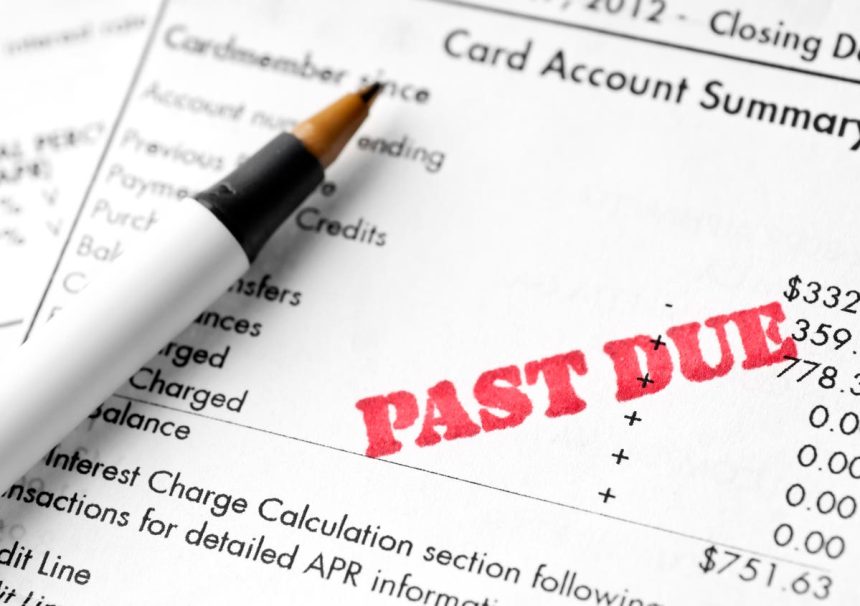CEO at Novae, a black-owned fintech serving consumers and small businesses nationwide, providing greater access to underserved communities.
It’s official: Debt has gotten out of control. America spends more on healthcare than all other wealthy democracies. And that’s without even getting into the rising cost of housing in major cities and suburbs or the “greedflation” that has caused the cost of many goods and services to rise for the sake of company growth.
As of this writing, U.S. households collectively face $17.05 trillion in debt that creditors expect them to pay back. This includes $12 trillion owed on mortgages, $1.6 trillion in student loan debt as of 2021 and $986 billion in collective credit card debt. Americans also had an estimated $195 billion in medical debt for receiving medical care in 2019.
This is a huge problem, and it’s becoming a vicious cycle. As of 2023, only 48% percent of adults in the U.S. surveyed by Bankrate say they have enough emergency savings to cover at least three months’ worth of expenses. The high debt payments experienced by many Americans probably has something to do with this lack of financial security.
So what do we do about this unsustainable situation?
As the CEO of a company that offers debt reduction services, I’ve noticed that a growing number of fintech companies and entrepreneurs have been exploring the debt reduction industry as one possibility. Debt reduction business models take advantage of the same financial principles as debt collectors—but they work for consumers by working to reduce the amount of debt they owe as much as possible instead of trying to collect as much as possible.
The traditional debt collection industry relies on creditors selling distressed debts, often for pennies on each dollar of debt owed. This has been a standard practice for decades, with corporations often assuming that a certain percentage of their customers will not pay back their debts and building this assumption into their fee structure.
They then sell those debts to debt collection agencies who pay them something instead of nothing, and who in turn attempt to turn a profit by using aggressive tactics to collect on the full original amount owed on the delinquent debts.
The new debt reduction industry is trying a business model that benefits consumers and reduces the amount of overall debt owed. I believe this business model has the potential to help alleviate the national problem of crushing debt and could make entrepreneurs who get into this business in its early days very successful.
Traditional debt collectors typically won’t let consumers know how little their debt was sold for or pass the savings along to the consumer. They demand the full amount of the debt from consumers, in part because their close rates tend to be very low due to chasing down unwilling or unable debtors, so their profit margin for successful collections needs to be very high.
Some debt reduction companies have a very different model. By enticing consumers to bring their debts to them to obtain a reduced payoff amount, they can obtain much higher close rates and so can afford a much lower profit margin per consumer. This allows them to pass much of the savings they get as a result of aggressive negotiations to buy distressed consumer debt onto the consumer. The creditor gets paid just as they would when selling debt to a debt collection agency, the debt reduction agency collects some profit, and the consumer often pays considerably less than they originally owed to clear their debt completely.
This is a fairly new industry, which means there are massive untapped markets and a lot of potential. With so many people struggling with distressed debts and relatively few companies offering this kind of debt reduction service, it’s fertile ground for entrepreneurs and fintech companies to consider growing into. Here are some tips for those interested in debt reduction from my own experience in fintech:
Establish your why. Why are you entering this space? One study found that mission statements that refer to the “fundamental rules” of business have a positive correlation with financial performance, and specialist companies can often maximize profits more effectively than generalists. So what type of consumer do you want to help by reducing their debts, and what can you learn about how to reach them? What kind of debt do you want to help alleviate, and what can you learn about that type of creditor to help you optimize your negotiations with them and get the lowest possible payoff amount?
Is there synergy between a particular target market or type of debt with your existing business? Do you already operate in an industry that generates a lot of debt? How can your specialized knowledge of this industry help you get the best debt payoff deals for consumers?
Be sure to know the rules and regulations. This may vary by state. When my own company began setting up our debt reduction services, we found that some U.S. states had laws prohibiting aggressive negotiations with creditors in the industries we were interested in. As a result, we had to refrain from offering services in certain states in order to stay in good legal standing. What are the specific laws around the types of debt you plan to specialize in at the federal and state levels?
Look for partnerships to shore up your weak points. No one can specialize in everything, and the debt reduction industry requires extensive familiarity with local laws as well as with the industry in which you service debts.
The new debt reduction industry could be one piece of the solution to America’s debt problem. Though tougher laws could help regulate pricing in some essential industries, these legal solutions are not coming fast enough to help many consumers who already have distressed debts. This is an opportunity for entrepreneurs and fintech companies to help consumers get some relief now while simultaneously growing our own markets.
Forbes Business Council is the foremost growth and networking organization for business owners and leaders. Do I qualify?
Read the full article here










